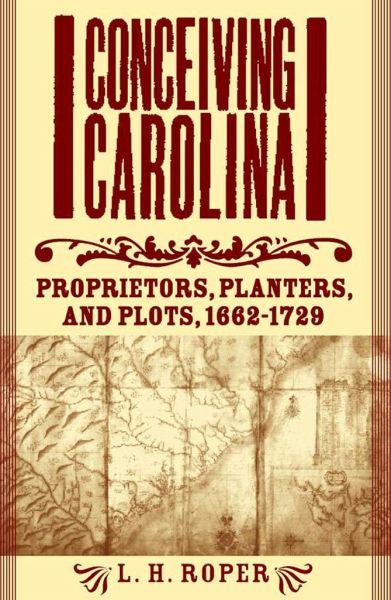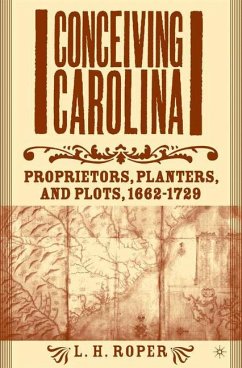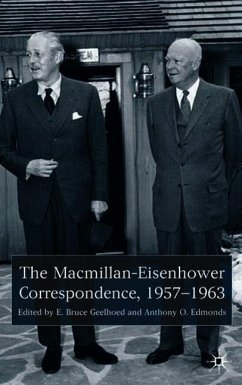
Conceiving Carolina
Proprietors, Planters, and Plots, 1662-1729
Versandkostenfrei!
Versandfertig in über 4 Wochen
52,99 €
inkl. MwSt.
Weitere Ausgaben:

PAYBACK Punkte
26 °P sammeln!
Written from a transatlantic perspective and based largely on primary sources, Conceiving Carolina provides the first systematic treatment of the colonization of South Carolina in over a century. It argues that the political culture that developed in the colony amounted to an extension of the political life in early modern England. Provincial politics, in turn, shaped social developments, notably the emergence of a slave society. Thus, the book calls into question the notion of the inherent distinction and modernity of colonial British America.














